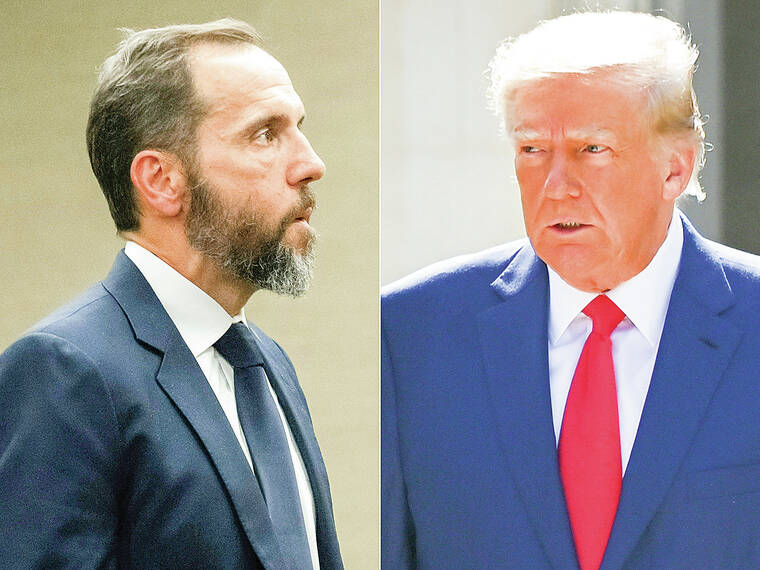Trump immunity fight in DC could derail, delay Fulton case
A high-stakes court battle playing out in a Washington, D.C., court this week could impact the timing of the election interference case against Donald Trump in Fulton County — or even decide whether the state’s prosecution of the former president can go forward.
Judges on the U.S. Court of Appeals for the District of Columbia will hear arguments on Tuesday about whether Trump is immune from prosecution for any acts he undertook while commander-in-chief.
ADVERTISING
The question strikes at the heart of Justice Department special counsel Jack Smith’s blockbuster case against the Republican presidential frontrunner, whom a federal grand jury charged in August for allegedly engaging in three conspiracies to overturn the results of the 2020 presidential election.
But it could also have major implications in Fulton, where many of the events in District Attorney Fani Willis’ election interference case also unfolded while Trump was still in office. Steve Sadow, Trump’s top Atlanta attorney, said at a hearing last month that he planned to introduce a similar immunity motion in Fulton ahead of a Jan. 8 court filing deadline.
“There can be no more important legal question this year or any year,” said Norm Eisen, former President Barack Obama’s ethics czar, who has closely followed the Trump criminal cases for the Brookings Institution.
The federal case could affect Willis’ case in two major ways.
First, an expected appeal to the U.S. Supreme Court could significantly delay the start date for Smith’s March 4 trial in Washington — which in turn could push back the timeline for trials in Fulton, New York and Florida, where Trump has been indicted.
Willis would like the racketeering trial against Trump and 14 others to begin in early August. Any additional delays could lead to severe legal and logistical complications should Trump regain the presidency, since there is no legal precedent for how to handle previously approved charges against a president once inaugurated.
Not only that, if the federal courts determine that presidents are absolutely immune from prosecution for acts they committed while in office, “the case against Donald Trump in Georgia largely collapses,” said John Malcolm, a former federal prosecutor and senior legal fellow at the conservative Heritage Foundation.


